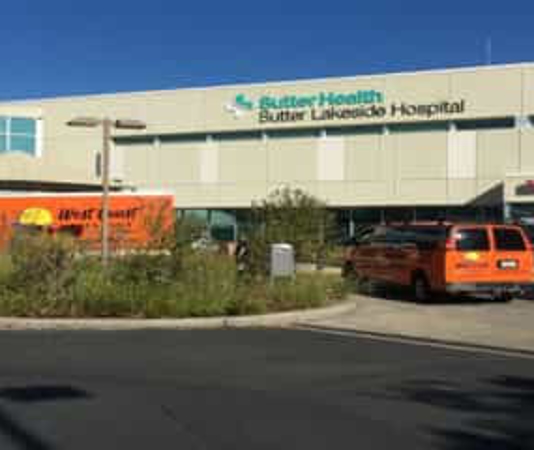
The 8 Most Common COVID-19 Cleaning Questions Businesses ask Commercial Cleaning Companies
The COVID-19 pandemic caught us all off-guard. Governments and businesses were not prepared for this virus and much is still not known about it.
Alas, life must go on. To keep the wheels turning and generate economic growth, states are reopening.
Businesses realize it’s their responsibility to provide a safe working environment. The CDC has issued several guidelines for businesses to decontaminate their facilities. Many businesses are turning to commercial cleaning companies for deep cleaning.
Commercial cleaning companies use specialized cleaning equipment and tools to deep clean areas and surfaces. They employ subject-matter experts with decades of experience. A commercial cleaning company uses time-tested methods to thoroughly clean and decontaminate.
Before hiring decontamination cleaning services in Sonoma County, remember to seek answers to these questions.
How can I be sure my provider uses a product that is effective against the coronavirus?
Not all cleaning products are effective. Many are ineffective against common bacteria and viruses. Before hiring a commercial cleaning company, make sure the products they use are included on the EPA’s List N (a list of registered cleaning products that have been proven effective against the coronavirus).
It is worth mentioning here that the EPA itself hasn’t established any guidelines for surface cleaning products; however, experts believe that when the EPA establishes protocols, the results will show that if a cleaning product is effective against other coronaviruses, it will also be effective against SARS-CoV-2.
What is dwell time? Is it true that a product will be effective only if it is allowed to dwell on a surface for at least 10 minutes?
Dwell time/contact time/kill time is the amount of time a cleaning product must be in contact with the surface and remain wet in order to achieve the product’s claimed kill rate. Every cleaning product has a specific dwell time. It is usually mentioned on the product label.
While many products have a dwell time of 10 minutes, others may require just 3-5 minutes to achieve the desired pathogen control.
Once a surface is deep cleaned, how long does it remain contamination-free?
There is no cleaning product that when applied to a surface will kill viruses and bacteria for an extended period.
How long a surface remains contamination-free will primarily depend on how frequently it is touched. High-touch surfaces such as doorknobs, laptop and desktop screens, lift buttons, keyboards, countertops, light switches, sinks, faucets, and desks can get cross-contaminated immediately after being thoroughly cleaned.
Cleaning these surfaces frequently will reduce the risk of cross-contamination.
The good news is that COVID-19 does not spread easily through contaminated surfaces. Research suggests that the coronavirus spreads when an infected person sneezes or coughs and respiratory droplets are released into the air.
If an infected person touches a surface, yet does not sneeze or cough and respiratory droplets aren’t produced, the surface is unlikely to get contaminated.
Is there a product or process that can kill the coronavirus for an extended period?
No. Though many manufacturers claim that their products can keep surfaces contamination-free for as long as 90 days with just application, they do not have any evidence to back these claims.
What steps can I take to clean my facility?
Here are some measures you can take to keep your facility clean and lessen transmission probability:
- Periodically deep clean high-touch surfaces such as doorknobs, computer screens, faucets, sinks, countertops, light switches, sinks, faucets, and desks.
- Clean all surfaces using soap and water or a mild commercial cleaning product every day. Regular cleaning will remove dust and debris that can shield harmful bacteria and viruses.
- How to clean: Soak a piece of cloth in a product from List N. Use the piece to wipe surfaces. Alternatively, use a cleaning wipe from List N. Pay special attention to high-touch surfaces and areas where germs hide.
If your facility receives many visitors in a day, this two-step process may need to be repeated throughout the day.
What measures should be taken while cleaning areas and surfaces?
You need to take various precautions to reduce the chances of cross-contamination and transmission risk when cleaning your facility.
Wear gloves, masks, and eye protection when cleaning surfaces. Make sure the area has good ventilation. If an area is not well ventilated, apply the cleaning product, and leave.
Dispose of gloves after cleaning and wash your hands. Deep cleaning should be done in two stages. First clean dirty surfaces with a mild detergent or soap and water solution.
Next, apply the cleaning product and wipe surfaces, evenly distributing the products in the process. Allow surfaces to air dry. Dispose of paper towels and cleaning wipes.
Which products help kill viruses?
Bleach solutions have been proved to be effective against the coronavirus. Use a bleach product containing 5.25 percent-8.25 percent sodium hypochlorite. Do not mix household bleach with ammonia as doing so can result in toxic gases being released into the air.
West Coast Fire & Water offers decontamination cleaning services in Sonoma County. We use EPA-approved eco-friendly products that do not release toxic gases. We are committed to helping businesses create a safe working environment. To discuss your project with a deep cleaning expert, call (707) 504-3708.

